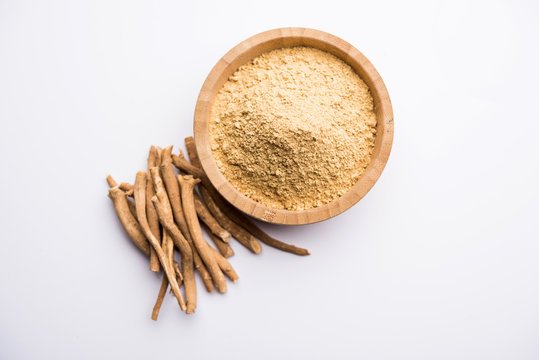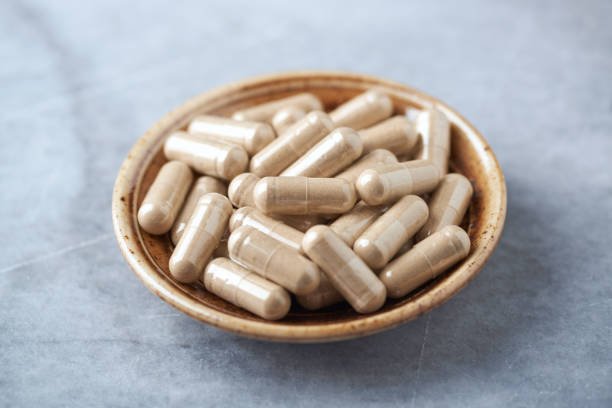Ashwagandha (Withania somnifera), often hailed as a cornerstone of Ayurvedic medicine, is celebrated for its adaptogenic properties, helping to reduce stress, improve sleep, and boost vitality. However, as its popularity surges in the wellness world, concerns about potential side effects, particularly liver toxicity, have emerged. This blog explores the lesser-known risks of Ashwagandha, focusing on its potential impact on liver health, and provides a balanced perspective from both Ayurvedic and modern medical viewpoints.


Understanding Ashwagandha and Its Popularity
Ashwagandha, known as “Indian ginseng,” is a revered herb in Ayurveda, used for centuries to balance Vata dosha, enhance ojas (vitality), and promote mental and physical resilience. Its active compounds, including withanolides, contribute to its stress-relieving, anti-inflammatory, and immune-modulating effects. Available as powders, capsules, or teas, Ashwagandha is widely marketed as a natural remedy for anxiety, fatigue, and hormonal imbalances.
Despite its benefits, recent reports and studies have raised questions about its safety, particularly regarding liver health. While rare, cases of liver injury linked to Ashwagandha have sparked debate about its risks, especially when used without proper guidance.


Can Ashwagandha Harm Your Liver?
Evidence of Liver Toxicity
While Ashwagandha is generally considered safe for most people when taken in moderation, there have been documented cases of liver injury associated with its use:
- Case Reports: Several studies and case reports, including those published in medical journals like Hepatology Communications (2020), have linked Ashwagandha supplements to drug-induced liver injury (DILI). Symptoms included jaundice, nausea, fatigue, and elevated liver enzymes (ALT, AST), indicating liver stress or damage.
- Mechanism: The exact cause of liver toxicity is unclear, but it may involve:
Overdose or High Potency: Excessive doses or concentrated extracts may overwhelm the liver’s detoxification pathways.
Adulteration: Poor-quality supplements may contain contaminants or unlisted ingredients that harm the liver.
Individual Sensitivity: Certain individuals, particularly those with pre-existing liver conditions or genetic predispositions, may be more susceptible to herb-induced liver injury.
- Rarity: Liver injury from Ashwagandha is rare, with most cases resolving after discontinuing the supplement. However, severe cases requiring hospitalization have been reported.
Ayurvedic Perspective on Ashwagandha and Liver Health
In Ayurveda, Ashwagandha is considered a warming, nourishing herb that supports overall vitality when used correctly. However, improper use can disrupt the body’s balance:
- Doshic Imbalance: Ashwagandha’s warming nature may aggravate Pitta dosha, which governs liver function and metabolism, potentially leading to inflammation or liver strain in Pitta-dominant individuals or those with excess heat.
- Ama (Toxins): If taken with poor digestion or in the presence of ama, Ashwagandha’s heavy, grounding qualities may contribute to toxin buildup, indirectly stressing the liver.
- Improper Use: Ayurveda emphasizes personalized dosing and preparation. Taking Ashwagandha without guidance from a practitioner, especially in high doses or in combination with other herbs or medications, may lead to adverse effects.
Ayurveda recommends using Ashwagandha under supervision, often paired with cooling herbs (e.g., Shatavari or Brahmi) or taken with milk to mitigate its warming effects and support liver health.
Other Potential Risks of Ashwagandha


Beyond liver concerns, Ashwagandha may pose other risks if not used appropriately:
- Digestive Issues: High doses can cause stomach upset, nausea, or diarrhea, particularly in Vata- or Pitta-dominant individuals.
- Hormonal Effects: Ashwagandha may influence thyroid hormones or cortisol levels, potentially causing imbalances in sensitive individuals.
- Drug Interactions: It may interact with medications like sedatives, thyroid drugs, or immunosuppressants, increasing the risk of side effects.
- Allergic Reactions: Rare cases of allergic reactions, including skin rashes, have been reported.
- Sedation: Ashwagandha’s calming effects may cause drowsiness, especially when combined with other sedatives or alcohol.
Who Is at Risk?
- Certain groups may be more vulnerable to Ashwagandha’s potential side effects, including liver-related issues:
Individuals with Pre-existing Liver Conditions: Those with hepatitis, fatty liver, or cirrhosis should avoid Ashwagandha unless cleared by a healthcare provider.
High-Dose Users: Taking concentrated extracts or doses above 1–2 grams daily increases the risk of toxicity.
Polypharmacy: Combining Ashwagandha with other supplements or medications that stress the liver (e.g., acetaminophen) may heighten risks.
Sensitive Constitutions: Pitta-dominant individuals or those with weak digestion may experience adverse effects more readily.
How to Use Ashwagandha Safely
To minimize risks and maximize benefits, follow these guidelines:
Consult a Professional:
Work with an Ayurvedic practitioner or healthcare provider to determine the appropriate form, dose, and duration based on your constitution (prakriti) and health status.
Start with a low dose (e.g., 250–500 mg daily) and monitor for side effects.
Choose High-Quality Products:
Opt for organic, reputable brands with third-party testing to ensure purity and avoid contaminants.
Prefer traditional preparations (e.g., Ashwagandha powder mixed with milk or ghee) over highly concentrated extracts.
Monitor Your Body:
Watch for symptoms of liver stress, such as yellowing skin/eyes, dark urine, or abdominal pain. Discontinue use and seek medical attention if these occur.
Avoid Ashwagandha if you have a history of liver issues unless approved by a doctor.
Balance with Lifestyle:
Pair Ashwagandha with a sattvic diet (e.g., whole grains, vegetables, fruits) to support digestion and liver health.
Practice dinacharya (daily routines) like morning meditation or gentle yoga to enhance Ashwagandha’s stress-relieving effects without overloading the system.
Avoid During Certain Conditions:
Refrain from use during pregnancy, breastfeeding, or acute illnesses unless advised by a professional.
Avoid combining with alcohol, sedatives, or other liver-stressing substances.
Ayurvedic Tips to Support Liver Health
To protect your liver while using Ashwagandha, incorporate these practices:
- Cooling Herbs: Pair Ashwagandha with cooling herbs like Brahmi or Coriander to balance its warming nature and support Pitta.
- Liver-Supportive Foods: Include bitter greens (e.g., kale, dandelion), beets, and turmeric to aid liver detoxification.
- Hydration: Sip warm water or herbal teas (e.g., cumin-coriander-fennel tea) to flush toxins and support digestion.
- Detox Practices: Perform gentle Panchakarma (under supervision) or daily tongue scraping to reduce ama and support liver function.
Conclusion
While Ashwagandha offers numerous benefits, including stress relief and vitality, it is not without risks. Rare cases of liver injury highlight the importance of using this herb mindfully, especially for those with pre-existing liver conditions or sensitivities. From an Ayurvedic perspective, Ashwagandha is most effective when tailored to your doshic balance, taken in moderation, and paired with a holistic lifestyle. Always consult an Ayurvedic practitioner or healthcare provider before starting Ashwagandha, particularly if you have concerns about liver health or are taking other medications. By respecting its potency and using it wisely, you can harness Ashwagandha’s benefits while minimizing potential dangers.


